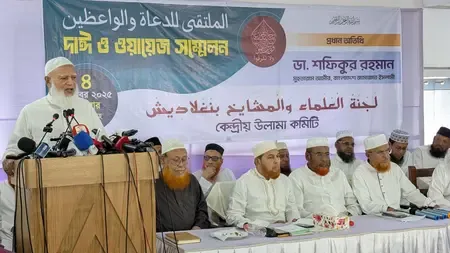Did Colombia and Uzbekistan Join the BRICS Bank?

Synopsis
Key Takeaways
- Colombia and Uzbekistan join the NDB, increasing membership to 11.
- The bank focuses on financing infrastructure and sustainable development.
- Current members include major economies from the Global South.
- NDB aims to support the Fourth Industrial Revolution.
- Equity and respect for sovereignty are core principles of the NDB.
Rio De Janeiro, July 6 (NationPress) Colombia and Uzbekistan have officially become members of the New Development Bank (NDB), thereby increasing the number of countries in the multilateral institution widely recognized as the BRICS Bank. This significant update was revealed by the bank's president, Dilma Rousseff, during a press conference held following the 10th meeting of the NDB's Board of Directors, just before the 17th BRICS Summit taking place on Sunday and Monday.
The Board of Governors of the bank has validated the inclusion of these two nations, which elevates the total membership to 11.
The current members now consist of Brazil, Russia, India, China, South Africa, Bangladesh, the United Arab Emirates, Egypt, Algeria, Colombia, and Uzbekistan.
Rousseff indicated that there are several other nations under consideration, which may join the bank in the future. She emphasized that negotiations regarding potential members remain confidential as per the board's protocol.
Highlighting the bank's purpose to support the Global South, she stated that the NDB is committed to financing innovation, science, and technology to assist BRICS countries in addressing the challenges of the Fourth Industrial Revolution, as reported by the Xinhua news agency.
Rousseff reiterated that the NDB honors the sovereignty and development priorities of its member countries, stating, “One of our key differences is that all members are equal, and every voice is heard.”
The NDB, a 21st-century institution rooted in solidarity, equity, and respect for national sovereignty, was established in 2015 by Brazil, Russia, India, China, and South Africa. It aims to mobilize resources for infrastructure and sustainable development initiatives in BRICS and other emerging market economies and developing nations.
With its headquarters in Shanghai, the NDB has already approved over 120 investment projects, amounting to approximately 40 billion US dollars, covering critical sectors such as clean energy, energy efficiency, transport infrastructure, environmental protection, water supply and sanitation, social infrastructure, and digital infrastructure.










